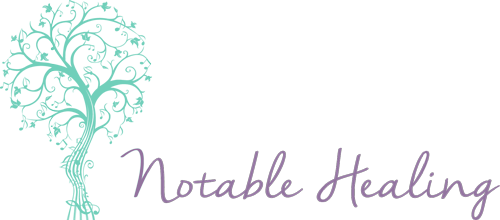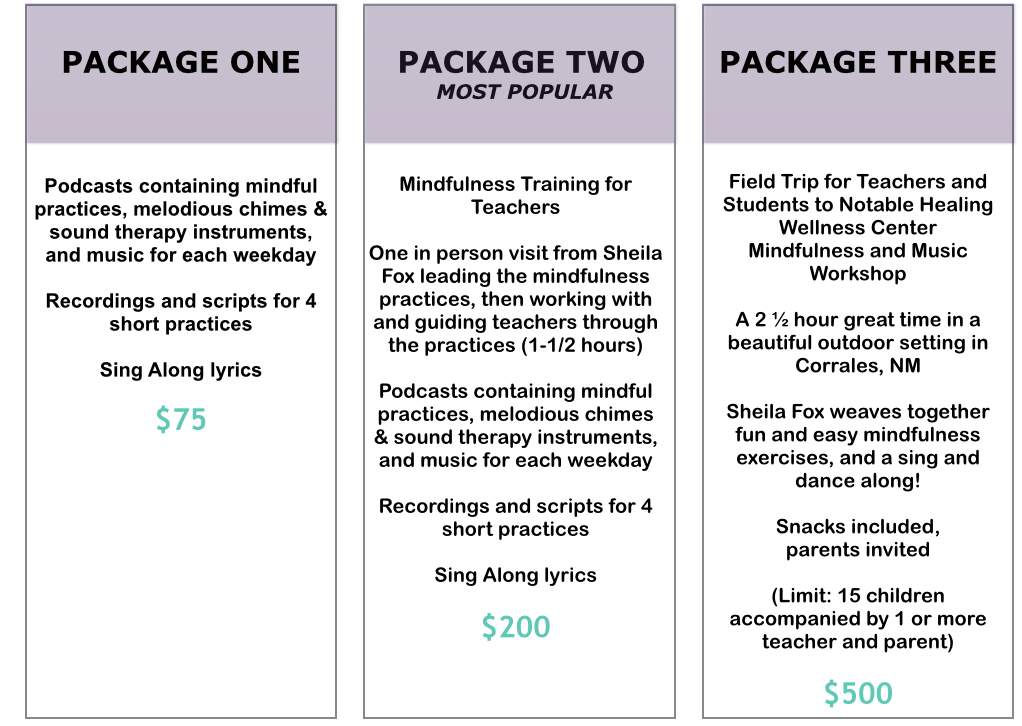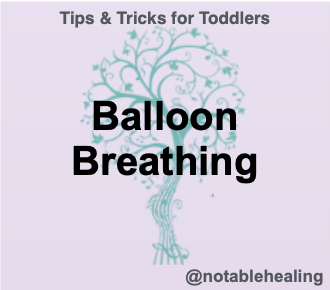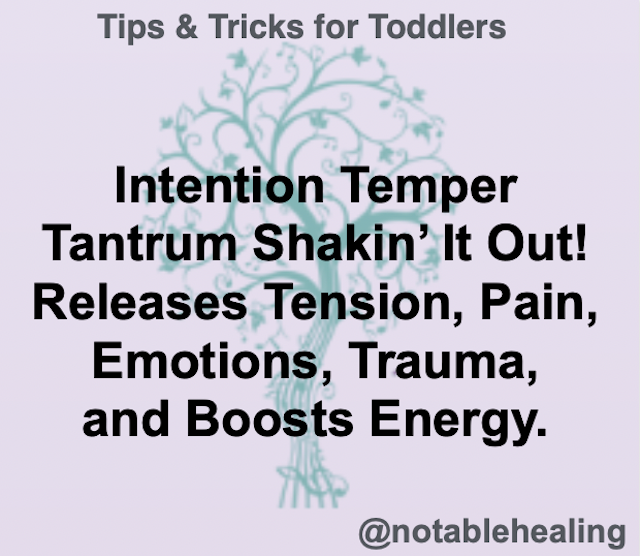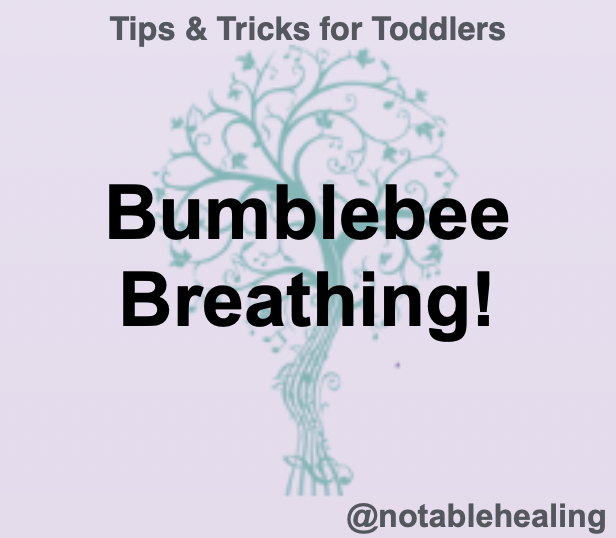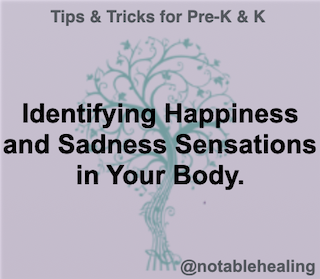Mindfulness and Music Program for Preschool & Kindergarten
Help Preschoolers and Kindergarteners Manage Their Emotions and Build Their Concentration Muscles
Dearest Educators,
As a teacher, parent, grandparent, and health practitioner at Notable Healing Wellness, the wellbeing of educators and their students is near and dear to my heart. That is why I created the Notable Healing podcast and Mindfulness and Music Program for schools.
Your profession as an educator, along with parenting, is where it all begins. In today’s world, teaching young children the roadmap to mindful living gives them resiliency, self management skills, emotional intelligence, empathy, concentration muscles, respect for self, others, and their environment.
As a certified teacher of iRest® (www.irest.org), a simple and accessible form of meditation, and as a sound therapist and professional vocalist/musician, I weave together a fun and interactive mindfulness program that children, teachers, and parents love. I invite you to listen to the Notable Healing podcast for Young Ones at www.notablehealing.com. Try starting your class each day this week with these mindful and musical recordings. I’m betting you will see results of a calmer and more focused classroom. It’s free and healthy! Each daily recording engages young minds and hearts the entire time. My very active 5 year old granddaughter is a testament to that!
The Notable Healing program delivers effective, simple and highly beneficial tools for learning, building/ maintaining calm, compassion, and focus. All of the above boosts the immune system as well! The peace of mind, self- love, and life purpose that adults and children seek are available through these lovely, creative and easy practices.
After you have tried out these helpful and fun sessions, please drop me a line at notablehealing@gmail.com. I’d love to hear about your experiences. Learn more at www.notablehealing.com.
In health and harmony,
Sheila Fox, Mindfulness, Music & Self Care Instructor,
www.notablehealing.com, notablehealing@gmail.com, 206-898-5090
What is Mindfulness?
Mindfulness is keeping your mind on what you are doing while being present and fully in the moment. You are aware of your thoughts, emotions, and the environment around you. This awareness impacts the body sensations you experience and the rhythm of your breath. Mindfulness is the practice of slowing down and being non-judgemental of self and others.
Daily mindfulness practice improves attention, self regulation, learning abilities, and reduces stress. Research in childhood education indicates improved levels of concentration and reduced cortisol levels (the hormone that causes stress). (Educational Psychology Review, March 2015, Volume 27, Issue 1, pp 1–30 | Cite as Contemplation in the Classroom: A New Direction for Improving Childhood Education).
“Training your mind to be in the present moment is the #1 key to making healthier choices.”
— Susan Albers, PsyD
Here Are Effective Ways Mindfulness and Music Can Be Used in Your Classroom:
Start the Day on a Positive Note - “Two minute centering and gratitude practice.” Listen from start to finish to a harmonious chime recording, followed by having each student and teacher bring to their minds, three things they’re grateful for. Option: time permitting, you can have students share their gratitudes or assign a few students a day to share their gratitudes.
Refocusing the Class - Using a one minute body and breath scan focuses attention internally, so students and teachers are less distracted or scattered.
A Quick Pick Me Up - Using a tapping method, each student and teacher brings their fingertips to top of head and taps whole head, then inhales for a count of 4 and exhales for a count of 4, three times (coherent breathing) This synchronizes the brain and heart.
Managing Emotions - Finger holds are a great way to manage emotions. Holding the thumb for one minute to manage feelings of overwhelm or sadness. Holding the middle finger for anger or rage, or the small finger for low self esteem. Each finger represents a meridian channel that connects to an emotion and organ system in the body. This mindfulness practice is particularly effective and easy for children.
Vocabulary - Words such as gratitude, kindness, inhale and exhale are used through the daily affirmations and songs. These words are a part of the mindfulness experience.
Music and Rhythm Fun - Each recording ends with a song. Clap your hands or even get up and dance! Take out your class’s basket full of percussion instruments and tap out the beat! This is very focusing, kinesthetic, and fun!
“If you want to conquer the anxiety of life, live in the moment, live in the breath.”
—Dr. Amit Ray
Mindfulness and Music Program Packages
Listen Below to Sample Practices
Tips & Tricks for Pre-K & K
Below are helpful Tips & Tricks to help children practice mindfulness daily.
click each image to practice the Tip & Trick.
“I had the pleasure of working with Sheila at my previous elementary school. The students looked forward to her classes each week. Her sessions were thoughtful, well planned, accessible, and relatable to our students. Sheila leaves a positive and lasting impact on whomever she meets inspiring self-care and self-love.”
—Katrice Grant, Former School Counselor at Whittier Elementary School
